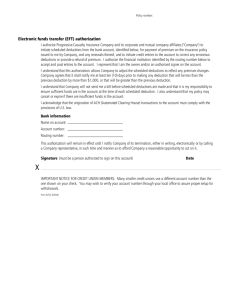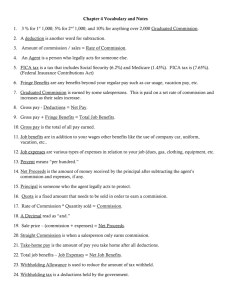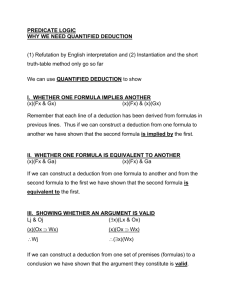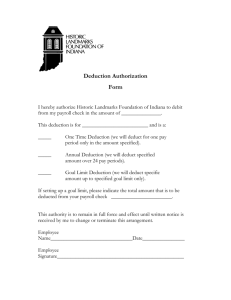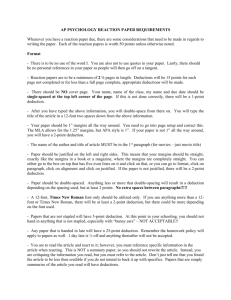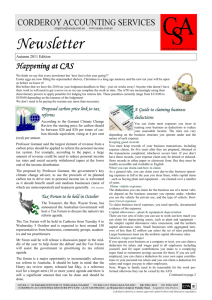Internal Revenue Code Section 62(a)(2)
advertisement
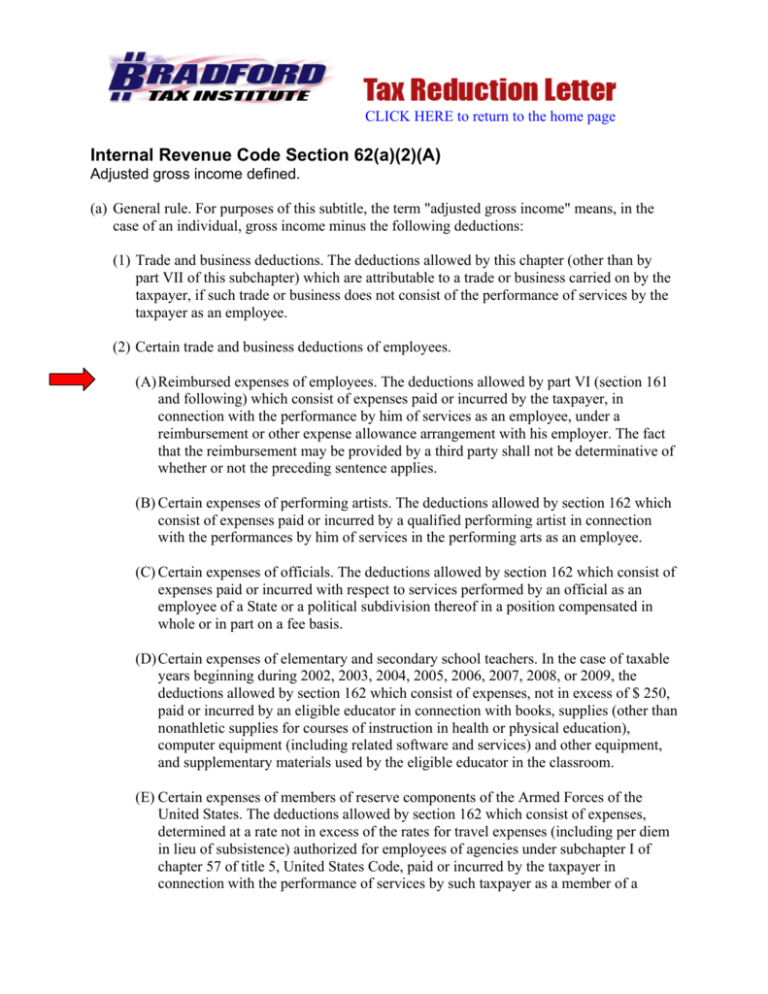
CLICK HERE to return to the home page Internal Revenue Code Section 62(a)(2)(A) Adjusted gross income defined. (a) General rule. For purposes of this subtitle, the term "adjusted gross income" means, in the case of an individual, gross income minus the following deductions: (1) Trade and business deductions. The deductions allowed by this chapter (other than by part VII of this subchapter) which are attributable to a trade or business carried on by the taxpayer, if such trade or business does not consist of the performance of services by the taxpayer as an employee. (2) Certain trade and business deductions of employees. (A) Reimbursed expenses of employees. The deductions allowed by part VI (section 161 and following) which consist of expenses paid or incurred by the taxpayer, in connection with the performance by him of services as an employee, under a reimbursement or other expense allowance arrangement with his employer. The fact that the reimbursement may be provided by a third party shall not be determinative of whether or not the preceding sentence applies. (B) Certain expenses of performing artists. The deductions allowed by section 162 which consist of expenses paid or incurred by a qualified performing artist in connection with the performances by him of services in the performing arts as an employee. (C) Certain expenses of officials. The deductions allowed by section 162 which consist of expenses paid or incurred with respect to services performed by an official as an employee of a State or a political subdivision thereof in a position compensated in whole or in part on a fee basis. (D) Certain expenses of elementary and secondary school teachers. In the case of taxable years beginning during 2002, 2003, 2004, 2005, 2006, 2007, 2008, or 2009, the deductions allowed by section 162 which consist of expenses, not in excess of $ 250, paid or incurred by an eligible educator in connection with books, supplies (other than nonathletic supplies for courses of instruction in health or physical education), computer equipment (including related software and services) and other equipment, and supplementary materials used by the eligible educator in the classroom. (E) Certain expenses of members of reserve components of the Armed Forces of the United States. The deductions allowed by section 162 which consist of expenses, determined at a rate not in excess of the rates for travel expenses (including per diem in lieu of subsistence) authorized for employees of agencies under subchapter I of chapter 57 of title 5, United States Code, paid or incurred by the taxpayer in connection with the performance of services by such taxpayer as a member of a reserve component of the Armed Forces of the United States for any period during which such individual is more than 100 miles away from home in connection with such services. (3) Losses from sale or exchange of property. The deductions allowed by part VI (sec. 161 and following) as losses from the sale or exchange of property. (4) Deductions attributable to rents and royalties. The deductions allowed by part VI (sec. 161 and following), by section 212 (relating to expenses for production of income), and by section 611 (relating to depletion) which are attributable to property held for the production of rents or royalties. (5) Certain deductions of life tenants and income beneficiaries of property. In the case of a life tenant of property, or an income beneficiary of property held in trust, or an heir, legatee, or devisee of an estate, the deduction for depreciation allowed by section 167 and the deduction allowed by section 611. (6) Pension, profit-sharing, and annuity plans of self-employed individuals. In the case of an individual who is an employee within the meaning of section 401(c)(1), the deduction allowed by section 404. (7) Retirement savings. The deduction allowed by section 219 (relating to deduction of certain retirement savings). (8) [Repealed] (9) Penalties forfeited because of premature withdrawal of funds from time savings accounts or deposits. The deductions allowed by section 165 for losses incurred in any transaction entered into for profit, though not connected with a trade or business, to the extent that such losses include amounts forfeited to a bank, mutual savings bank, savings and loan association, building and loan association, cooperative bank or homestead association as a penalty for premature withdrawal of funds from a time savings account, certificate of deposit, or similar class of deposit. (10) Alimony. The deduction allowed by section 215. (11) Reforestation expenses. The deduction allowed by section 194. (12) Certain required repayments of supplemental unemployment compensation benefits. The deduction allowed by section 165 for the repayment to a trust described in paragraph (9) or (17) of section 501(c) of supplemental unemployment compensation benefits received from such trust if such repayment is required because of the receipt of trade readjustment allowances under section 231 or 232 of the Trade Act of 1974 (19 U.S.C. 2291 and 2292). (13) Jury duty pay remitted to employer. Any deduction allowable under this chapter by reason of an individual remitting any portion of any jury pay to such individual's employer in exchange for payment by the employer of compensation for the period such individual was performing jury duty. For purposes of the preceding sentence, the term "jury pay" means any payment received by the individual for the discharge of jury duty. (14) Deduction for clean-fuel vehicles and certain refueling property. The deduction allowed by section 179A. (15) Moving expenses. The deduction allowed by section 217. (16) Archer MSAs. The deduction allowed by section 220. (17) Interest on education loans. The deduction allowed by section 221. (18) Higher education expenses. The deduction allowed by section 222. (19) Health savings accounts. The deduction allowed by section 223. (20) Costs involving discrimination suits, etc. Any deduction allowable under this chapter for attorney fees and court costs paid by, or on behalf of, the taxpayer in connection with any action involving a claim of unlawful discrimination (as defined in subsection (e)) or a claim of a violation of subchapter III of chapter 37 of title 31, United States Code or a claim made under section 1862(b)(3)(A) of the Social Security Act (42 U.S.C. 1395y(b)(3)(A)). The preceding sentence shall not apply to any deduction in excess of the amount includible in the taxpayer's gross income for the taxable year on account of a judgment or settlement (whether by suit or agreement and whether as lump sum or periodic payments) resulting from such claim. (21) Attorneys fees relating to awards to whistleblowers. Any deduction allowable under this chapter for attorney fees and court costs paid by, or on behalf of, the taxpayer in connection with any award under section 7623(b) (relating to awards to whistleblowers). The preceding sentence shall not apply to any deduction in excess of the amount includible in the taxpayer's gross income for the taxable year on account of such award. Nothing in this section shall permit the same item to be deducted more than once. ...
